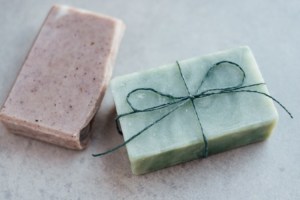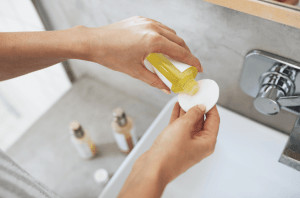The Antiviral Properties Of Tea Tree Essential Oil Explained

It’s always good to play it safe by keeping it clean. After all, we are constantly exposed to germs everywhere we go- the office, the supermarket, the movie theater, etc. Germs are everywhere, and they’re not always bad. In fact, exposure to germs helps to build our immune system and keeps us healthy!
But despite germs helping our immune systems, it’s still best to stay away from them when possible. And this is easier said than done. That’s because once we touch a surface with germs – such as a door handle – and then we touch another surface such as our phone, we transfer the germs in the process. Ultimately, germs from our phone then touch our face and then enter our bodies. That’s when we can start having issues.
On a daily basis, we can feel healthy despite this transferring of germs. Yet in the wake of a global pandemic, people are doing everything they can to keep COVID-19 away. And this includes trying to think of new and effective ways to keep ourselves and surfaces clean. There’s no need to panic when trying to protect yourself from the novel coronavirus, or any virus, for that matter. But you should be making sure to do everything that you can in order to keep yourself and your loved ones safe and healthy.
Originally from the Land Down Under, tea tree oil has made its way all across the world. This is due to its antiviral and antiseptic disinfectant properties. So let’s discover everything that tea tree oil can do for you and your cleaning needs.
Tea Tree Oil As An Antiviral Agent
While many people know tea tree oil for its anti-fungal properties, the native Australian oil has also been shown to possess anti-bacterial, anti-yeast, acaricidal, and antiviral qualities. As a result, people all over the world have adopted tea tree oil as an antiseptic. You can find it in hand sanitizers, vaporizers, or surface cleaning products. However, the rise of destructive viruses like SARs, H1N1, and Covid-19 has led many researchers to look deeper into tea tree as a potential accessible solution.
In fact, the first large scale study on tea tree and its antimicrobial effects was conducted with great success in 2006 by researcher Christine F. Carson. This groundbreaking study began with the tobacco mosaic virus and continued to study the effects of tea tree on the Herpes Simplex Virus. Carson found that tea tree oil “may act against enveloped and nonenveloped viruses, although the range of viruses tested to date is very limited.” Hundreds of researchers took Carson’s work and expanded it to help us get a much broader understanding of tea tree oil. So much so that a 2009 study found that tea tree can be effective against certain forms of the influenza virus. They even managed to isolate the active component responsible for the antiviral properties: terpinen-4-ol.
Later studies would unlock just how tea tree oil works as an antiviral to inhibit viruses from binding to host cells and what concentrations were necessary to accomplish this. The culmination of this research has proven that tea tree oil does indeed possess powerful and effective antiviral properties which can be utilized by masses in products such as hand sanitizers. Furthermore, whereas the alcohol in these sanitizers quickly evaporates, tea tree oil can remain on the skin protecting it for several hours. However, it should be noted that the tea tree oil doesn’t necessarily absorb into the skin. It primarily stays on the surface as a natural antiviral shield to help prevent the spreading of viruses.
How To Use Tea Tree Oil For Cleaning
With the powerful protective properties of tea tree in mind, let’s get into how we can use this botanical for cleaning. I love coming home to the smell of a nice, hot meal being cooked. But coming home to the smell of harsh chemicals? That’s much lower down on my list. Which is one of the reasons that using tea tree oil for cleaning is so great. When diluted and mixed with other ingredients, it can leave a really pleasant scent. So when using natural products to clean your house is an option, why not go for it?
There are plenty of ways to make a tea tree oil antiseptic. If you’re looking for just a general cleaner, combine 4 cups of hot water with 20 drops of tea tree oil and a cup of vinegar. Really, it’s that simple. Just make sure not to use this mixture on marble or granite, as it’s not good for the stone.
In order to protect against mold and mildew, combine 2 cups of water and 2 teaspoons of tea tree oil in a spray bottle. That’s it! Then just shake the bottle and spray the disinfectant mixture directly on areas which are experiencing mold and mildew. Let the spray rest for a few minutes and then wipe the area clean. You can also use this disinfectant spray as a preventative measure in places which are likely to experience mold and mildew.
Remember what we said before about transferring germs from surfaces to yourself? If you are looking for a way to wipe down items such as your gym equipment, here’s what you can do. Just combine some eucalyptus oil, witch hazel, tea tree oil, and water in a spray bottle and spray away. Pretty soon your exercise mat, weights, and equipment handles will be good to go for you or someone else in your household to use.
Tea Tree Oil Antibacterial Hand Sanitizer

Hand sanitizer.
There are several problems with commercial hand sanitizers. Firstly, they make you smell as if you’ve just been to the doctor’s office. Second, they can be expensive. And third, in the case of a global pandemic, they might be hard to come by. So for all these reasons and then some, why not make your own tea tree oil hand sanitizer at home?
Simply combine a 1:3 ratio of aloe vera gel and isopropyl alcohol. Then add a few drops of tea tree oil and voilà, you’ve got yourself some tea tree oil antibacterial hand sanitizer for a quick and easy disinfectant!
According to the World Health Organization, an effective disinfectant hand sanitizer is at least 60% alcohol. Another recipe you can try involves 30 drops of tea tree oil, a cup of aloe vera gel, and 2 cups of 91% isopropyl alcohol. Of course, tea tree oil is included in this recipe because of the oil’s antibacterial and antiviral properties. But if you really don’t like the smell of it, you could always replace it with another essential oil that also has disinfectant properties such as lemon essential oil.
Combine all of the ingredients using a whisk so that it forms a smooth gel. In order to properly disinfect your hand sanitizer bottles before you put the hand sanitizer in, spray some of the leftover alcohol into the bottles. Let it rest until all of the alcohol has evaporated. Then pour in the hand sanitizer and you’re done!
Tea Tree Oil Soap Explained

Handmade tea tree soap.
As you by now already know, tea tree oil is a great ingredient for soaps because it has antibacterial, antifungal, and antiseptic properties. Skin washes that contain 5% tea tree oil are actually better at killing bacteria on the skin than are regular soaps and work as an antiviral. In addition, tea tree oil soap can leave you smelling really good. It helps eliminate impurities which can lead to bad odor, product buildup, etc. That’s why tea tree oil soap is also a good way to treat acne. And when faced with the choice of putting chemicals or natural ingredients on your face, the answer is clear.
The benefits of tea tree oil soap help prevent the growth and recurrence of microbes. They also reduce skin inflammation. This translates to disappearing blemishes and smooth, even-toned skin. Tea tree oil soap works on your skin without leaving it dry, itchy, or burning. So you don’t have to worry about putting something potentially harsh on your sensitive skin.
Tea tree oil soap will also help those who suffer from skin conditions such as eczema, psoriasis, dermatitis, and athlete’s foot. Additionally, its antiseptic quality means that it can work as a disinfectant to heal cuts and bruises speedily. Because of its mild manner, it can even soothe burns and abrasions on your skin.
How To Dilute Tea Tree Oil

Diluting tea tree oil.
It’s important to dilute tea tree oil before using it as a disinfectant, but especially if it’s going to come in contact with your skin. And people with sensitive skin should dilute the oil even more.
There are different ways to use a carrier oil for tea tree oil in order to dilute it, and this depends on what you plan on using the tea tree oil for. For instance, if you want to soothe a bug bite or sting, dilute it with coconut oil which also has antibacterial properties. If you want to use tea tree oil on your scalp just add a few drops to your shampoo. Doing this will break down the product buildup on your scalp and consequently give you healthier hair. It will also limit the growth of yeast on your head, putting an end to dandruff. To relieve congestion, add a few drops of tea tree oil to a carrier oil and put it in the shower before you enter in order for the oil to be released into the steam.
There are even times when you can just dilute tea tree oil with water in order to make it work for you. For instance, when using it on your skin, you can dilute it with water and spot treat in order to make pimples disappear. Even as a cleaning agent, tea tree oil mixed with water can help you clean your toothbrush and retainer. It can also aid in disinfecting your brushes and sponges.
Tea Tree Oil For Colds

Cold essentials.
Just when you think that tea tree oil can’t get any handier than it already is, BAM! You find out that tea tree oil is also good for colds. (And no, I don’t think that the BAM was too dramatic.)
What exactly are the health benefits of tea tree oil for colds? Well, it can stop the growth of bad bacteria which typically leads to sinus infections and other respiratory issues. Because of tea tree oil’s great cleaning and antiviral abilities, using it on your surfaces can help prevent colds in the first place.
We can take a page from the book of the Australian Aborigines, who used to crush up tea tree leaves and inhale them in order to treat colds and coughs. In fact, inhaling tea tree oil might also be able to help relieve symptoms such as a cough or sore throat.
With the help of a diffuser, you can use tea tree oil for sinus issues. Using this oil helps boost your immunity, and its expectorant quality helps relieve congestion. It can also help relax you, and when your body is less stressed it is better prepared to fight off illnesses.
Conclusion
Well, there ya have it, folks. The 411 on tea tree oil and all it can do for you as a disinfectant. Especially in our time of nerves over germs, but really always, it’s important to explore natural ways to disinfect the places and things around us. It’s one of the best ways to take care of ourselves, as well as our loved ones.
The disinfectant properties of tea tree oil are quite powerful. But as we’ve discovered, tea tree oil is also good for a whole host of other issues from skincare to cold and sinus relief. So whether you choose to purchase tea tree oil products or make them yourself, this is one ingredient you shouldn’t pass up.


